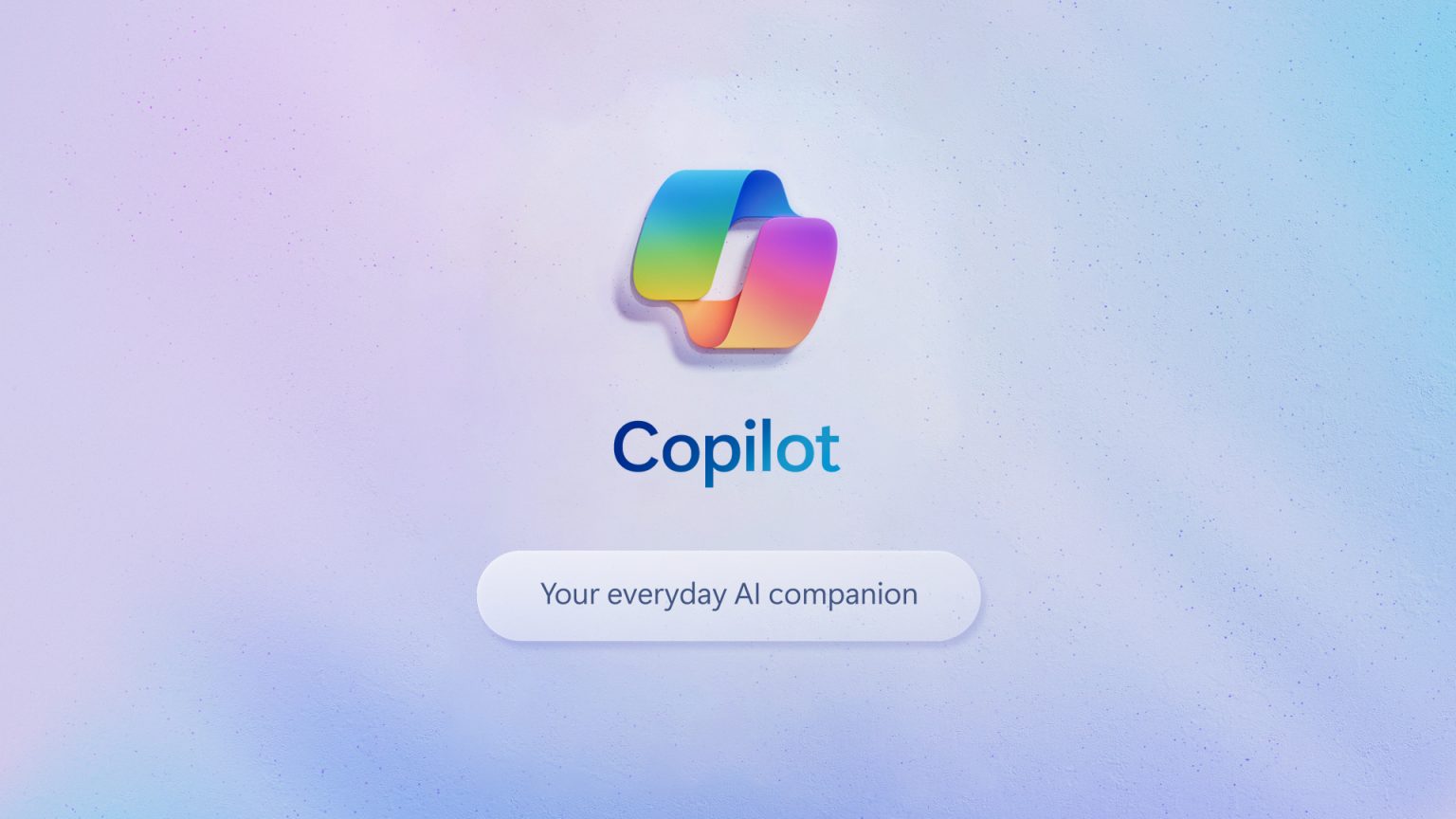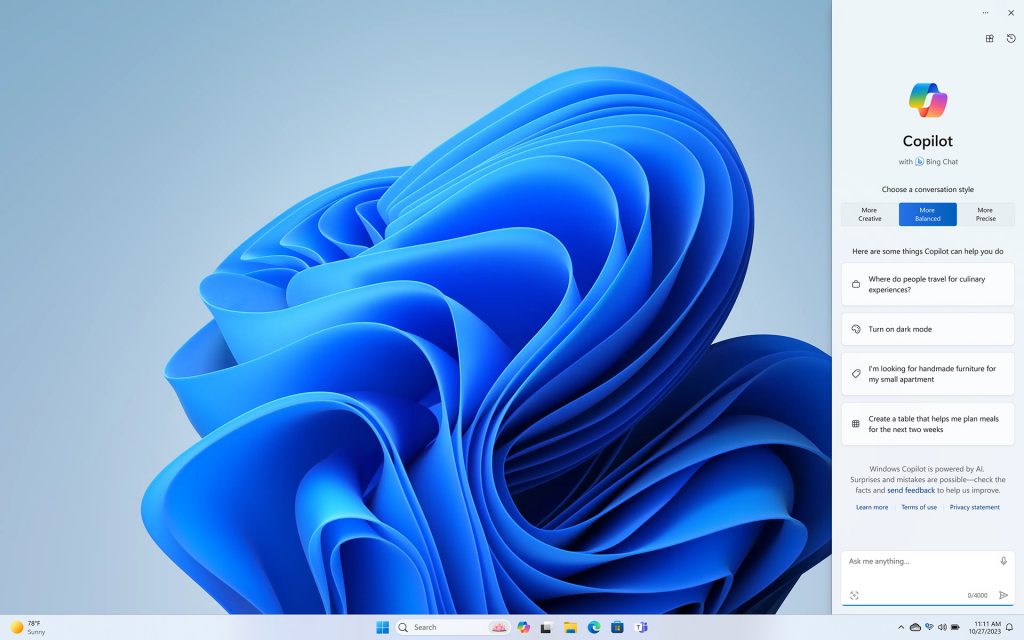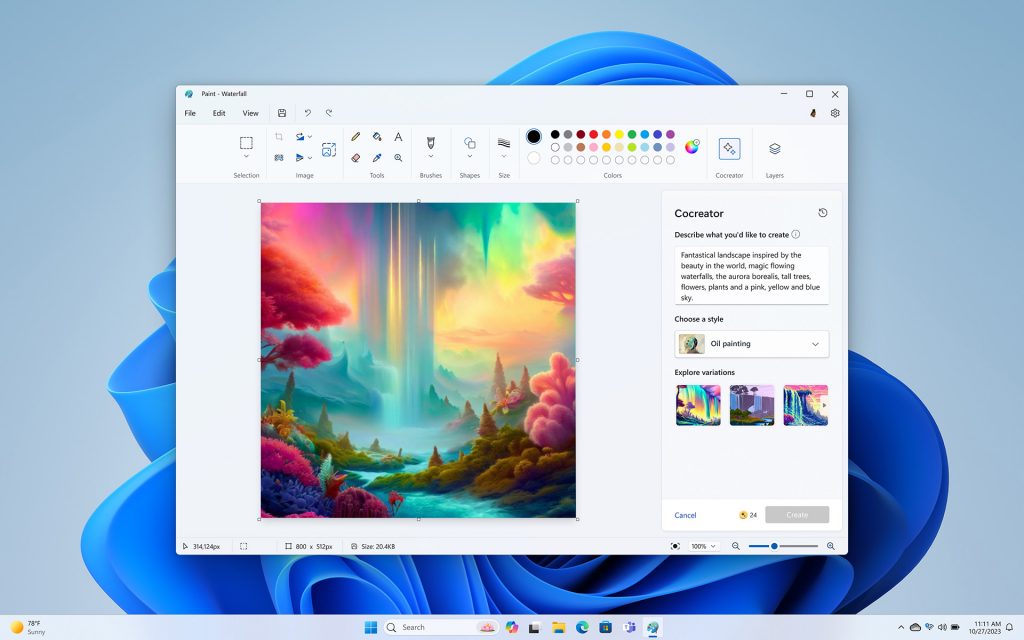Windows Copilot is a brave new world for your OS but I'm still not convinced
They say the more things change, the more they stay the same. This time, they might be wrong.

Windows 11 hasn't always had the easiest ride when it comes to inspiring consumer confidence, and it would be fair to say that the OS had something of a rocky start when it was released all the way back in October 2021. While it certainly looked smart with its smooth desktop animations and subtly rounded edges, you couldn't help shake the feeling that Windows 10 did it better and seemed more stable and feature complete to boot. Early versions felt rickety, and forums soon began to fill with scores of complaints about bugs and missing features.
Many moons and many updates have passed since then, and Microsoft have been slowly working in the background to add features and stability to an operating system that arguably should have had them in the first place. However, as of yesterday those of you with the "Get the latest updates as soon as they are available" option checked in Windows Update should be able to install the new "KB5031455" update manually.
Microsoft refer to this as "Moment 4", and while on the surface it doesn't appear to change much, underneath the hood there are some surprising new features that may give a hint as to where Microsoft see the OS heading next.
On first boot the login page and the desktop itself seem to remain the same, with no obvious visual changes to report, and Windows itself seems to respond and perform in much the same way it always did. So far, so ho-hum. However, a quick scan of the taskbar reveals the addition of a mysterious multi-coloured icon sitting next to your search bar, with a yellow badge marked "pre". Click on it and a sidebar opens to the right of your desktop, and the walls of your reality begin to melt.
Welcome, my friends, to Windows Copilot. This is Microsoft's first real step into integrating AI within the OS, and they describe it as "the intelligent assistant at your fingertips". Right from the off you're invited to "choose a conversation style", with options to set it to More Creative, More Balanced, or More Precise. Windows is about to give you some personality it seems, and this is merely the beginning of what's to come.
Windows Copilot: A useful tool, or Microsoft's latest attempt at an unhelpful paperclip?

Copilot has suggestions from the get-go, and these seem somewhat random at first glance. I was given the option to let Copilot calculate whether I could save money on my energy bill if I switched from gas to electric, write code for a linked list structure in C, or rather bizarrely write step-by-step instructions on how to make a pizza "crust" and provide me with a list of suitable ingredients. Underneath these suggestions is a rather portent disclaimer that Copilot is using AI to respond, so mistakes are possible, and it's difficult to shrug off the idea that an AI assistant integrated into the OS feels oddly like the second coming of Clippy.
Regardless, perhaps the most interesting feature is a text box at the bottom of the bar inviting you to "Ask me anything". Alright then. I bloody well will.
Keep up to date with the most important stories and the best deals, as picked by the PC Gamer team.
I started off easy. "What's the weather like in London today?" I asked, a fairly innocuous question already answered by the weather widget in the bottom left of my taskbar. This prompted Copilot to take a long pause, as if drawing breath, before giving me a complete in-depth weather report with all the information you might reasonably require, and perhaps more besides.
While the answer I was looking for was "it's October, so grey and miserable of course", I was instead furnished with a breakdown of rain patterns, a warning of potential thunder, wind direction and speed, UV index reports and a pollution check. Underneath, Copilot listed multiple sources of information it used to create my own personal weatherman in a bullet-pointed list, with these links repeated below under the banner of "Learn more".
The system seems keen to point out its sources for verification, and this feels like a deliberate attempt at transparency to allay any fears that the AI could be secretly biassed towards certain results. As a first go, it was certainly impressive, but it did make me wonder whether my question could be better answered simply by showing me the weather widget I had conveniently ignored.
Next I tested its integration with default applications on my system, of which there currently seems to be none. "Show me my emails" was interpreted as a Bing search for the term "how to access emails in Outlook web app" and generated a truly gigantic step-by-step response, at the end of which I was invited to "Have a great day!", complete with smiling emoji.
Underneath were a suggestion of similar search terms, and I felt a slight twang of disappointment at the realisation that Copilot in its current form is not yet capable of acting like a buffer for those of us that provide tech support for the less computer inclined. Simply asking a digital assistant in plain text to help you navigate Windows itself seems like an obvious use case for this feature, yet I could find no evidence of it here.
AI integration is coming to Windows applications everywhere

Copilot might be the most obvious AI addition to this latest version of the OS, but it's far from alone. Old familiar favourites like the Snipping Tool have been given a dose of the AI magic with the addition of "text extraction and redaction", a feature that can detect and extract specific pieces of text from snipped articles and video for use elsewhere, and even black out data you deem sensitive. Given that privacy is a major concern when it comes to public sentiment towards the relentless march of AI, it seems fitting that it's found a major use case here that may help protect it, and the feature worked well enough in my testing.
Even good old Paint is about to be furnished with some AI features, including something rather worryingly called "Cocreator". This appears to still be relegated to Windows Insider builds as I could find no option for it on my system, but Microsoft say that it's designed to "unleash your creativity" by allowing you to input a text prompt, choose a style, and let Paint generate a unique image that you can then adjust with some built-in tools.
AI image generation is something of a hot-topic amongst creative types, and it's not hard to see how adding it into Windows by default might fan those particular flames. Regardless, it's coming, and from the looks of everything we've seen so far AI integration into multiple Windows applications is a trend that looks set to continue.
As things currently stand, this latest update acts as a first look for the majority of Windows users into the brave new world Microsoft seem to be planning. There has been mention of future versions of the OS integrating Copilot into the Start Button itself, and it's difficult to think that these new features will be where the buck stops. Your daily Windows experience is about to feel the touch of AI, although the efforts on display here definitely feel like a feature test rather than a complete integration with much work yet to be done.
That being said, AI all up in your OS seems to be here to stay, and this latest update may very well be the beginning of a new dawn for your everyday computing experience, whether you like it or not. Change is in the air, and it may well be the start of a whole new way of interacting with your OS in years to come.

Andy built his first gaming PC at the tender age of 12, when IDE cables were a thing and high resolution wasn't—and he hasn't stopped since. Now working as a hardware writer for PC Gamer, Andy's been jumping around the world attending product launches and trade shows, all the while reviewing every bit of PC hardware he can get his hands on. You name it, if it's interesting hardware he'll write words about it, with opinions and everything.

